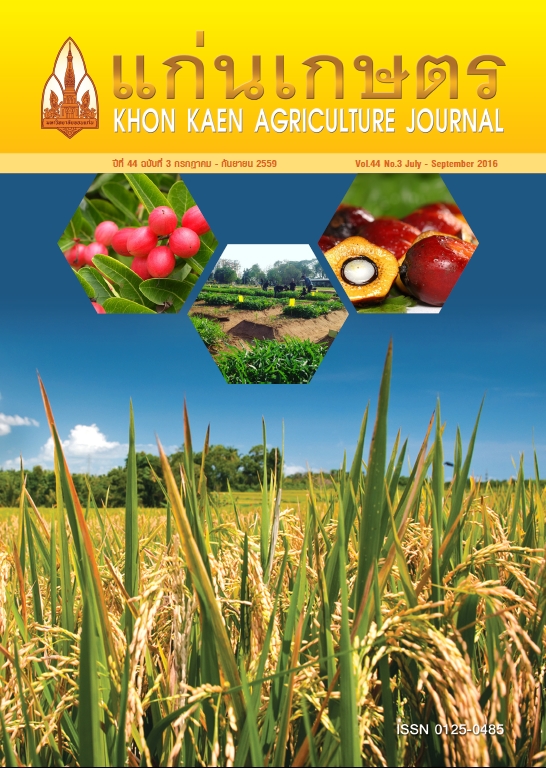Consumers’ knowledge and awareness towards organic vegetable certification in Phnom Penh City, Cambodia
Main Article Content
บทคัดย่อ
This paper is investigated about consumers’ knowledge and awareness of organic vegetable certification in Cambodia. Data providers was collected in Phnom Penh city through face to face survey within 402 respondents. The descriptive statistics and chi-square test were employed. Gender, organic knowledge, and trust’s label were found relatively statically significant related to consumer’s propensity to purchase organic vegetables. Further results show that organic vegetable certification could be divided into three classes including (1) organic vegetables sticking organic logo, (2) sticking generic term “organic”, and (3) sticking organic logo and generic term. Organic consumers usually bought organic vegetables sticking with logo and generic term “organic” while the decision making was made by their own self rather than other. About 80 percent of organic consumers recognized the organic certification. However, consumer’s knowledge on organic certification is limited since 85 percent of consumers bought chemical free vegetables confused that it was organic vegetables, so television and radio should broadcast more about organic information since these are the significant media.
Article Details
เอกสารอ้างอิง
Cambodia organic agriculture association [COrAA]. 2009. Available: http://www.coraa.org. Accessed Sep. 2, 2014.FiBL and IFOAM. 2014. The World of Organic Agriculture Statistics and Emerging Trends 2014. Available: http://goo.gl/GuuAGA. Accessed Aug. 29, 2014.
Janssen, M., and U. Hamm. 2012. Product labelling in the market for organic food: Consumer preferences and willingness-to-pay for different organic certification logos. Food Quality and Preference. 25(1): 9-22.
Jarupong, P., and B. I.Chuleemas. 2011. Risk Assessment of Pesticide Residues in Organic Waste inNortheast Thailand. International Journal of Environmental and Rural Development. 2(1): 49-53. Kleemann, L., Abdulai, A., and M. Buss. 2014. Certification and Access to Export Markets: Adoption and Return on Investment of Organic-Certified Pineapple Farming in Ghana. World Development. 64: 79-92.
Makarady, K. 2007. Country report on organic agricul-ture in Cambodia. Paper presented at the Regional Conference on Organic Agriculture in Asia, Bangkok.
Ministry of Planning, and Ministry of Health. 2011. Democraphy census and Health of Cambodia.Ozguven, N. 2012. Organic Foods Motivations Factors for Consumers. Procedia - Social and Behavioral Sciences. 62: 661-665.
Savoeun, L. 2008. The feasibility study on the development of organic vegetable farming in Saang District, Kandal Province. Master Thesis. Royal University of Agriculture, Phnom Penh.
Soeun, M. 2004. Country paper on food safety overview in Cambodia. Phnom Penh: Ministry of Agriculture, forestry, and fisheries.
Veldstra, M. D., Alexander, C. E., and M. I. Marshall. 2014. To certify or not to certify? Separating the organic production and certification decisions. Food Policy. 2: 429-436.
Yu, B., and X. Diao. 2011. Cambodia’s Agricultural Strategy: Future Development options for the rice sector. Cambodia Development Resource Institute. T&S Printing, Phnom Penh.


